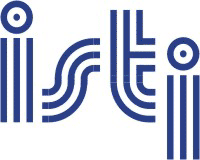Corpus linguistics serving research
in terminology and translation
Seminar
Institut supérieur de traducteurs et interprètes
Haute École de Bruxelles
April 24th, 2009
 |
 |
 |
 |
The Centre de recherche en linguistique appliquée Termisti, at the Institut supérieur de traducteurs et interprètes (ISTI, member of the Haute École de Bruxelles), together with the Centrum voor Vaktaal en Communicatie at the Erasmushogeschool Brussel (Department of Applied Linguistics), are pleased to invite you to a joint seminar to be held on April 24th, 2009 at ISTI (34 rue Joseph Hazard, 1180 Brussels).
While corpus linguistics as a discipline appeared more or less at the same time as computer science, it has long been confined to the margins, the preserve of specialists in language engineering and lexicometrics, or of researchers working in major laboratories such as Nancy’s Institut national de la langue française. The microcomputing revolution contributed to the rise of corpus linguistics in the late 1990s, with the appearance of easy to use concordancers. Subsequently, the information highways have allowed the accumulation and circulation of vast corpora of electronic texts. At the same time, the world of professional translation has been quick to exploit the research possibilities opened up by language engineering, sometimes even driving new developments in translation tool technology and terminological practice.
In the field of theoretical studies, the use of corpora has for a long time been left to one side in favour of firmly established principles set forth by dominant theoretical schools, such as Noam Chomsky’s. This is why in terminology, the theoretical foundations of the “Vienna School”, expressed in the works of Eugen Wüster or Helmut Felber, coupled with a prescriptive trend in language planning, have led to a general neglect of the reality of usage. This “conceptual” approach has been substantially revised following research conducted over the last twenty years on the extraction of candidate terms, and a number of innovative doctoral studies based on the observation of usage within vast specialised corpora.
The primary importance of concordancers, alignment software and other tagging tools is increasingly being recognised in university curricula, encouraging reflection on the fundamentals of language, speech and translation. Graduates in translation or in language and literature who are thinking of undertaking doctoral studies need to be aware of the various systematic and rigorous research possibilities offered by corpus linguistics. Knowledge of the tools and techniques used in this field is indispensable, since they are dramatically altering the traditional methods of observation in all branches of knowledge dealing with linguistic events: stylistics, discourse analysis, lexicology, phraseology, semiotics or cognition.
In the course of the seminar, the speakers will attempt to take stock of the many advances made possible through the exploitation of written or oral corpora in their respective research fields.
Lynne Bowker (School of Translation and Interpretation, University of Ottawa), Mathieu Guidère (ETI, Université de Genève), Natalie Kübler (CLILLAC-ARP, EILA, Université Paris Diderot), Sabela Fernández Silva (IULATERM, Universitat Pompeu Fabra) et Koen Kerremans (CVC, Erasmushogeschool Brussel), Lieve Macken (LT3, Hogeschool Gent), Kris Heylen (QLVL, Katholieke Universiteit Leuven), Serge Verlinde et Ann Bertels (Grelep, Katholieke Universiteit Leuven), Laurent Nicaise (Université libre de Bruxelles).
| 09h30 – 10h00 | Registration of participants | |
| 10h00 – 10h15 | Welcome | |
| 10h15 – 11h15 | Lynne Bowker (School of Translation and Interpretation, Université d'Ottawa): Exploring technology in the context of translation and terminology research: Overview and prospects | abstract |
| 11h15 – 11h30 | Coffee break | |
| 11h30 – 12h00 | Serge Verlinde et Ann Bertels (Grelep, Katholieke Universiteit Leuven): La lexicographie et l'analyse de corpus : nouvelles perspectives | abstract |
| 12h00 – 12h30 | Sabela Fernández Silva (IULATERM, Universitat Pompeu Fabra) and Koen Kerremans (CVC, Erasmushogeschool Brussel): Studying terminology and variation in specialised texts: corpus requirements and tools | abstract |
| 12h30 – 14h00 | Lunch | |
| 14h00 – 14h30 | Natalie Kübler (CLILLAC-ARP, EILA, Université Paris Diderot): La linguistique de corpus comme éclairage de la conscience linguistique en traduction pragmatiquee | abstract |
| 14h30 – 15h00 | Lieve Macken (LT3, Hogeschool Gent): Dutch Parallel Corpus: a multifunctional multilingual corpus | abstract |
| 15h30 – 16h00 | Laurent Nicaise (Université libre de Bruxelles): La sémantique cognitive et la linguistique de corpus ont enfin signé un contrat de mariage de raison | abstract |
| 16h00 – 16h15 | Coffee break | |
| 16h15 – 16h45 | Mathieu Guidère (ETI, Université de Genève): Les corpus de textes publicitaires : nouvelles approches et méthodes pour le traducteur | abstract |
| 16h45 – 17h15 | Kris Heylen (QLVL, Katholieke Universiteit Leuven): Quantitative Lexicology and its Terminological Applications | abstract |
| 17h15 – 17h30 | Synthèse finale | |
| 17h30 | Reception |
If you wish to attend the event, please register before April 10th, 2009, by sending an e-mail to info@termisti.be. The participation fee is 25 euros, which covers documentation, lunch and reception. This amount must be paid by bank transfer to the Haute École de Bruxelles’ account, and should include the note “séminaire Termisti-CVC: your name and forename”. Please note that payments should be made by April 18th, 2009.
Account #: 068-2143700-27
IBAN: BE48 0682 1437 0027
BIC: GKCCBEBB
MCF Haute École de la Communauté française de Bruxelles
749, chaussée de Waterloo
B-1180 Bruxelles
Belgium
Centre de recherche TERMISTI
Institut supérieur de traducteurs et interprètes
34, rue Joseph Hazard
B-1180 Brussels
Belgium
 |
 |
 |
Last modified date: March 11, 2009
©
.